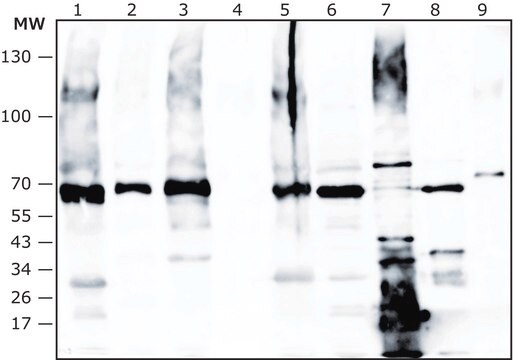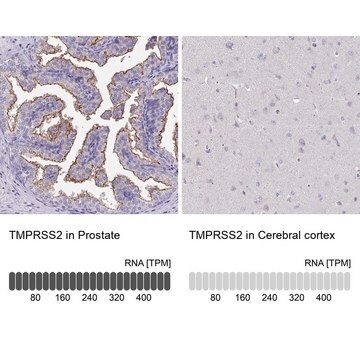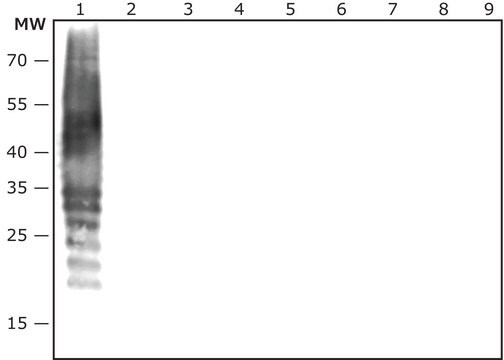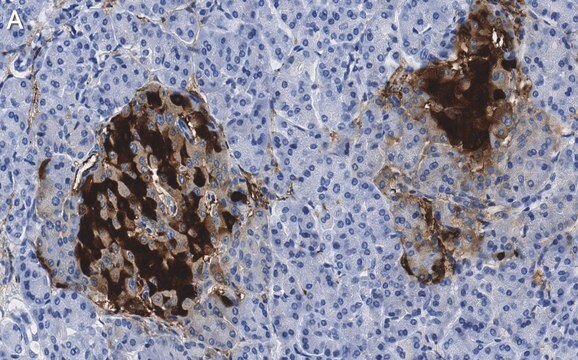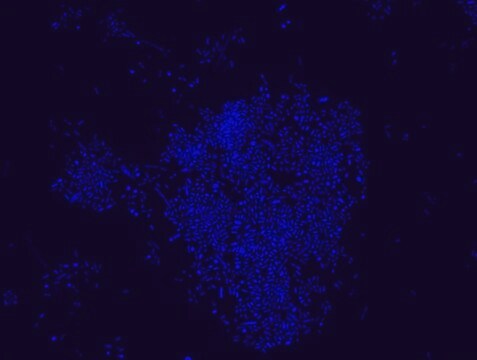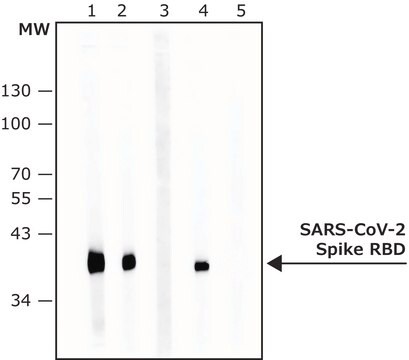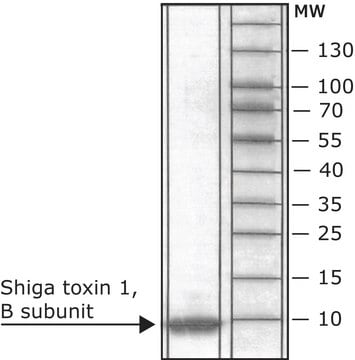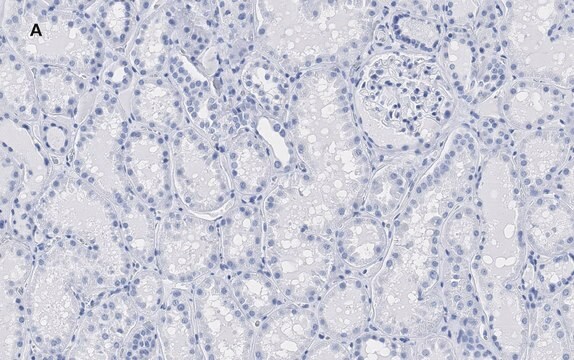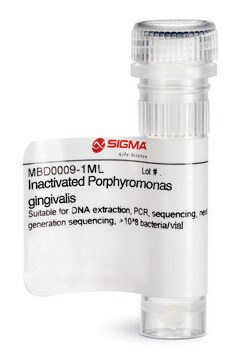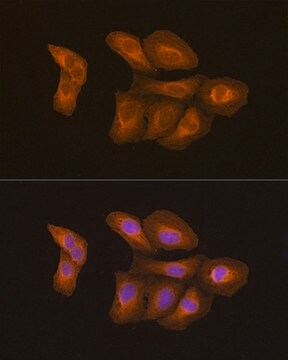SAB4200870
Anti-Akkermancia muciniphila antibody produced in rabbit
IgG fraction of antiserum
About This Item
Productos recomendados
origen biológico
rabbit
Nivel de calidad
forma del anticuerpo
IgG fraction of antiserum
tipo de anticuerpo
primary antibodies
Formulario
liquid
reactividad de especies
(Akkermancia muciniphila)
envase
pkg of 100 μL
pkg of 25 μL
concentración
~1 mg/mL
técnicas
immunoblotting: 1:500-1:1000 using Akkermansia muciniphila lysate
Condiciones de envío
dry ice
temp. de almacenamiento
−20°C
modificación del objetivo postraduccional
unmodified
Descripción general
In addition, goring research identified A. muciniphila as a promising potential probiotic that can be administrated for the treatment of diseases such as, colitis, metabolic syndromes, immune diseases and cancer. However more research is needed to verify the safety of oral administration of A. muciniphila in humans.3
Especificidad
Acciones bioquímicas o fisiológicas
Forma física
Almacenamiento y estabilidad
Cláusula de descargo de responsabilidad
¿No encuentra el producto adecuado?
Pruebe nuestro Herramienta de selección de productos.
Código de clase de almacenamiento
12 - Non Combustible Liquids
Clase de riesgo para el agua (WGK)
nwg
Punto de inflamabilidad (°F)
Not applicable
Punto de inflamabilidad (°C)
Not applicable
Elija entre una de las versiones más recientes:
Certificados de análisis (COA)
It looks like we've run into a problem, but you can still download Certificates of Analysis from our Documentos section.
Si necesita más asistencia, póngase en contacto con Atención al cliente
¿Ya tiene este producto?
Encuentre la documentación para los productos que ha comprado recientemente en la Biblioteca de documentos.
Nuestro equipo de científicos tiene experiencia en todas las áreas de investigación: Ciencias de la vida, Ciencia de los materiales, Síntesis química, Cromatografía, Analítica y muchas otras.
Póngase en contacto con el Servicio técnico